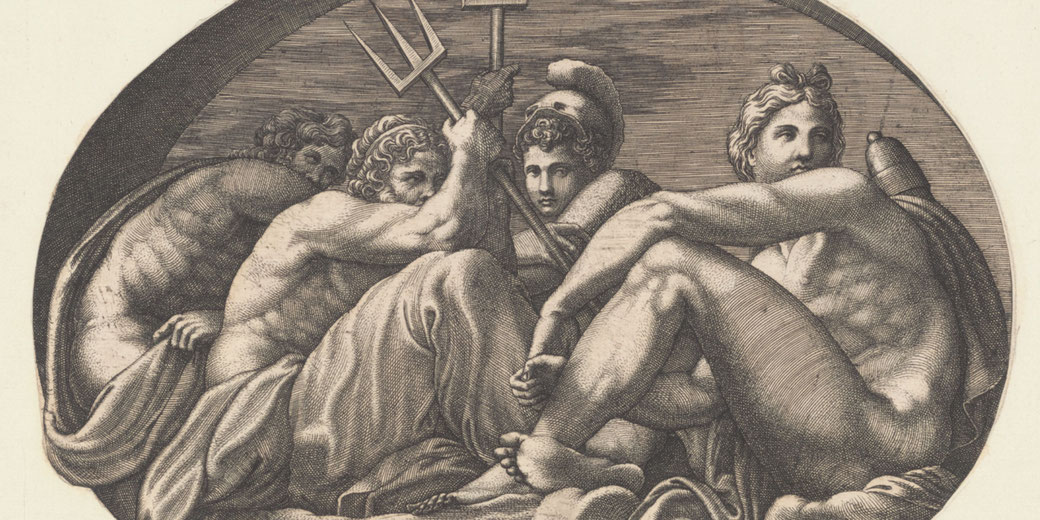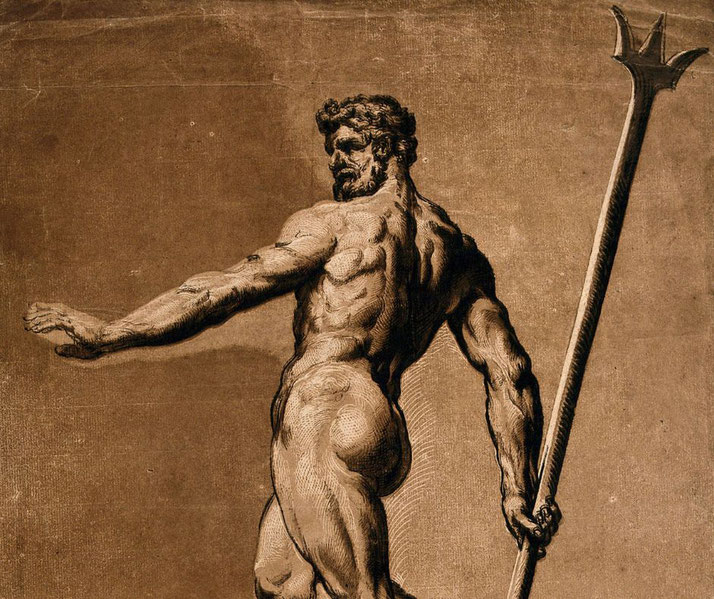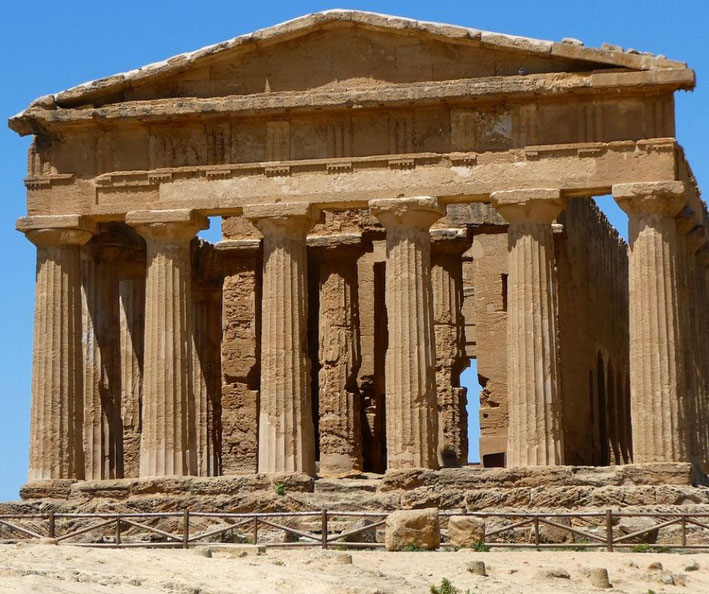How did Ancient Greek religion work?

Religion was important in the lives of the ancient Greeks because they believed that many gods controlled the natural world and affected human actions.
As such, when the Greeks made statues of their gods, they presented them so that they appeared like normal humans.
Similarly, they believed the everyday lives of the gods were just like those of humans, except they had special powers.
In the most famous Greek religious book, The Iliad, the gods directly interacted with people.
They had the same feelings and could be jealous, angry, selfish, and fall in love. Many of them were also thought to live at a real place in Greece: Mount Olympus in the north of the country.
Because of this, the main Greek gods were called the 'Olympians'. The king of the deities was Zeus, and he had power over the sky, storm and lightning.

Greek temples
The main religious buildings in Greek religion were temples. They were not like today's churches: ordinary people usually could not go inside to worship in them.
Instead, the temples were the homes of the gods and were thought to be the physcial where they lived.
As a result, they were to 'special' for regular people to enter. So only the priests could enter the temples to see the gods regularly.
Usually, the more important a god was to a city-state, the more impressive their temple was.
For example, Athena, the lead goddess of Athens, had the largest, most costly temple, which was situated on the highest hill in the city.
If a person wanted help from a god, they would stand outside the temple to pray and leave a gift, in the hope the god would answer.
Sometimes, everyone in a city took part in a large religious ceremony. During these events, it was common for animals to be offered.
This meant that a bull, or sheep would be killed, and the meat might be cooked and shared with the worshippers.

The demi-gods
In Greek religion, gods just one kind of super-powered beings. The Greeks also believed in another group called the 'demi-gods' or 'heroes'.
A demi-god was someone who had one parent who was a god and the other was a normal, mortal human.
As a result, a demi-god had some of the powers of their divine parent, but also some of the weaknesses of their human parent.
Still, their powers let them perform great and brave deeds, which is why they were called 'heroes'.
Some famous Greek heroes were Heracles, who had great strength, and Achilles, who could not be killed in battle.
The afterlife
The ancient Greeks believed people lived on after death. They thought there was a place below the ground called 'Hades', or, in other words, the underworld.
Confusingly, a god, who was also named Hades, ruled over this region. The place called Hades was thought to be a real, physical place that someone could, in theory, reach while they were alive.
However, it was separated from the living world by the River Styx, which could only be crossed after you had died.
To move the souls of the dead across this river, a mysterious boatman named Charon was responsible for transporting them in exchange for a small payment.
For that reason, Greeks put coins with the body at funerals, so that their dead love ones could afford Charon's fee.
Once in the underworld, a dead person faced a judgment to decide where in Hades they would spend eternity.
If they had done good deeds in life, they went to a place of peace called the Elysian Fields, but if they had been evil, they went to Tartarus, where they were punished forever.
What do you need help with?
Download ready-to-use digital learning resources
Copyright © History Skills 2014-2025.
Contact via email
With the exception of links to external sites, some historical sources and extracts from specific publications, all content on this website is copyrighted by History Skills. This content may not be copied, republished or redistributed without written permission from the website creator. Please use the Contact page to obtain relevant permission.





